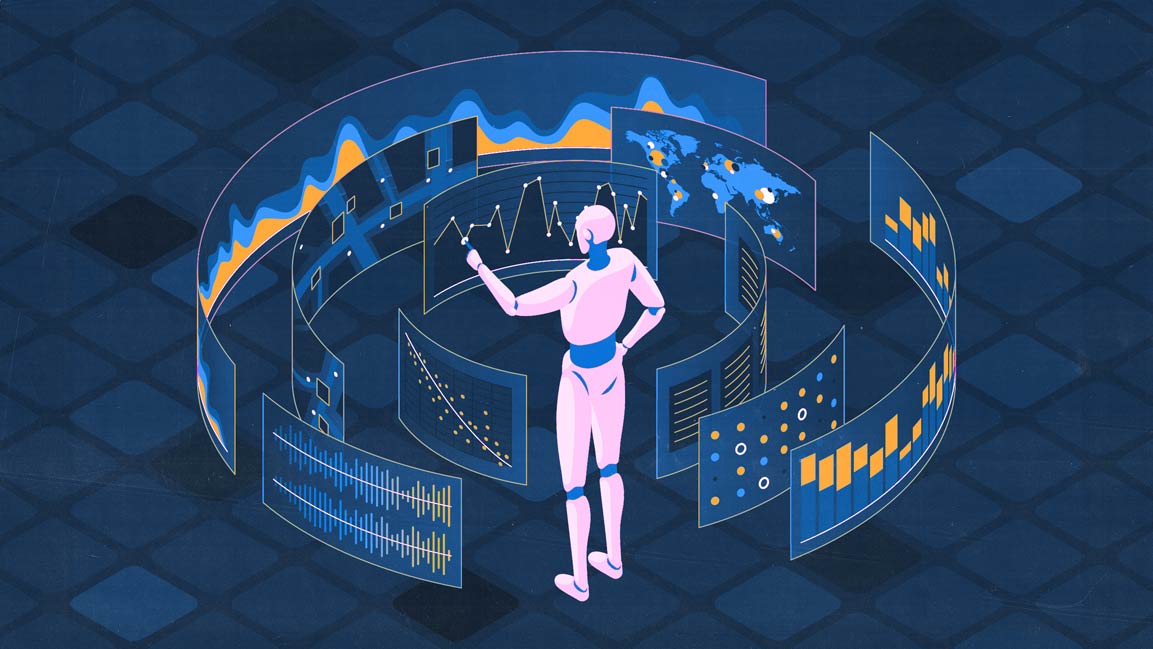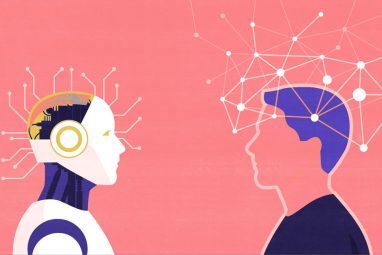AI is Taking Big Decisions. How can Businesses in the Middle East Build a Culture of AI Ethics?
Experts share tips on counteracting risks and work to ensure that the AI systems they build or implement are safe, secure, unbiased, and transparent.
News
- Meta Signals Shift Toward Paid Features With Subscription Tests Across Its Apps
- All LLMs Are Trained on the Same Data’: Oracle Chief Flags AI’s Biggest Challenge
- Concern Grows as ChatGPT References Musk’s Grokipedia in Factual Answers
- TII and Qualcomm Bet on Edge AI to Move Autonomous Systems Out of the Lab
- Musk Predicts AI Will Outpace Human Intelligence by 2026
- UAE Companies Double Down on AI, but Gaps Persist: Report

[Image source: Chetan Jha/MITSMR Middle East]
AI enhances decision-making, driving better outcomes and operational efficiency across the board in business operations in various industries, including health care, banking, retail, and manufacturing. Businesses have unique opportunities to leverage AI’s potential by predicting market trends before they emerge, personalizing customer experiences in real time, optimizing supply chains, and in countless other ways.
But with great power comes great responsibility, and risks—a predicament never previously experienced by businesses.
AI’s game-changing promise to improve efficiency and lower costs has been tempered by worries that these complex, opaque systems bring ethical considerations, security risks, and data privacy concerns.
To counteract these risks, businesses, as they embrace AI, must work to ensure that the AI systems they build or implement are safe, secure, unbiased, and transparent.
When deploying AI, ethics isn’t a checkbox, but a commitment. Ensuring that an algorithm’s purpose aligns with the organizational ethos leads to brand unity and a legacy rooted in trust.
Identify AI’s Ethical Issues At An Early Stage
Experts say AI ethics can’t be just a set of policies or a follow-up project. When building AI solutions, organizations need to embed ethics into the process early and ensure teams and individuals are engaged in ethical AI as a part of everyday work.
Organizations should embed ethical considerations throughout the development lifecycle, according to Sherif Kinawy, Head of Cognitive Networks MEA, Ericsson.
“This involves conducting impact assessments from the design phase, evaluating data sources for bias, ensuring transparency in model decision-making, and aligning outcomes with legal and societal standards. Cross-functional collaboration is essential to uncover potential risks.”
The ability for an organization to identify ethical issues early hinges on having a strong AI governance framework. “It should clearly outline how AI systems will meet fundamental ethical standards, including regulatory compliance, data privacy, social responsibility, and risk mitigation,” says Thys Bruwer, Consulting, Data & Analytics Leader for Middle East & Africa, DXC Technology.
Kinawy adds: “By establishing strong governance mechanisms early on, companies can ensure their AI systems remain responsible, trustworthy, and aligned with broader values like inclusion and sustainability.”
To avoid misuse and ensure the accuracy and integrity of AI outcomes, Bruwer adds it’s vital that an organization, its executives, and team members all agree that AI should only be used within its proven capabilities and agreed-upon boundaries. “Anything beyond that, risks falling into unethical territory, even unintentionally.”
That’s not all. To build a culture of AI ethics, having a cross-functional team that includes ethicists, legal experts, technologists, and business leaders who can collectively assess risk, spot unintended consequences early, and implement clear safeguards is crucial. Democratization of the process is essential to ethics.
“The diversity of teams is essential, as certain behavior patterns considered fair and ethical by one group may be incompatible for another group. AI applications can therefore act unethically according to the value set of one stakeholder group, while being perfectly ethical under the value set of the group that designed them,” says Bruwer.
While organizations need to ensure that teams and individuals are engaged in ethical AI as part of their everyday work, mandatory data ethics education for all employees working in the customer insights, data, and analytics teams is also necessary.
Incorporating AI Ethics Into Processes
With AI’s rapid rise, many organizations are quickly trying to adapt to and implement new technologies. In the rush to implement AI, some companies ignore ethical concerns.
Experts affirm that integrating AI ethics into processes accelerates innovation rather than hinders it. By prioritizing ethical considerations from the beginning, businesses can create AI systems that are trustworthy, fair, and designed to thrive in the future.
“The first step is to define and agree on clear, measurable goals,” says Bruwer. “Define exactly what your AI should and shouldn’t do, and establish how you’ll track its performance and fairness.”
Next, sift through your data. Is it representative? Has it been tested for known biases? Are your features truly relevant, or might they introduce unintended discrimination?
“Traceability is crucial: for every AI release, you should be able to document which datasets were used, how they were prepared, and how bias was addressed,” says Bruwer.
“From there, profile your AI. Build tools to test it against ethical benchmarks and assess risk. If problems arise, be ready to intervene by re-training models, adjusting learning processes, or applying bias corrections to outputs.”
Finally, ethical AI is not a one-and-done task. Organizations must stay on top of evolving regulations and adapt AI strategies accordingly. “You need to monitor your models continuously, especially if they learn over time. Look for model drift and new forms of bias as data changes, and keep your documentation up to date,” says Bruwer.
Companies can embed AI ethics by establishing clear, actionable policies and conducting regular bias audits of algorithms and datasets. Prioritizing robust data privacy and ensuring transparency in AI decision-making are essential.
Kinawy says, “Fostering a responsible AI culture through continuous employee training and diverse development teams integrates ethical considerations from the outset. Maintaining meaningful human oversight and clear accountability mechanisms ensures ethical responsibility.”
He adds: “At Ericsson, our Ethics Guideline for Trustworthy AI1, informed by EU standards, emphasizes these principles to ensure AI is lawful, ethical, and robust in practice.”
Companies are adopting various strategies to integrate AI ethics into their processes, from data collection to model training.
For example, DeepL, a leading global Language AI company, has developed a robust data filtering system over the past eight years, enhanced by synthetic data sources and a team of research scientists and data engineers.
“This proactive approach helps us identify and reduce bias before it affects our models, ensuring higher-quality translations,” says David Parry-Jones, Chief Revenue Officer, DeepL.
Its bias mitigation extends beyond model development. “We continuously evolve our products to enhance user engagement and deliver personalized translations. Features like Clarify for DeepL Pro users enable discussions about context, intention, and nuances, ensuring greater accuracy,” adds Parry-Jones.
Data privacy is also a cornerstone of DeepL’s responsible AI approach, adhering to global privacy standards, including the GDPR, and safeguarding user data. “Pro customers’ data is never shared with third parties, and in the event of a data breach, we notify users within 72 hours, ensuring confidentiality for sensitive information.”
Data Ethics And AI Ethics Go Hand In Hand
Data is at the heart of AI. AI is only as ethical as the data it’s trained on. And that’s why data ethics and AI ethics must evolve together.
The company must record data on each AI use case. This could include using model cards to explain how models were designed and evaluated. The company then can review each use case to determine whether it meets its criteria for responsible AI.
“If your training data contains hidden biases—whether due to sampling errors, unrepresentative subsets, or inherited prejudice—AI systems will unknowingly learn and replicate those biases at scale,” says Bruwer.
While it’s easy to forget that AI lacks context, Bruwer says, “These systems can’t distinguish between a good and a biased decision, unless they’ve been carefully taught the difference.”
That’s why understanding how data was collected and questioning its representativeness is fundamental. Is it inclusive of the full population it’s meant to serve? Were important variables excluded due to unconscious bias? Even subtle decisions in how we sample or label data can produce long-term effects.
Many organizations state their goal of being data-driven; however, detecting every bias in a dataset is difficult. But asking the right questions, monitoring AI outputs for signs of unfairness, and continuously re-evaluating assumptions are critical to ethical AI use and outcomes. Reviewing each use case before it’s deployed.
“The effectiveness, fairness, and trustworthiness of AI systems depend on how data is sourced, managed, and applied,” says Kinawy, adding that Ericsson recognizes that biased or poorly governed data can lead to unethical AI outcomes such as discrimination or privacy violations.
“By embedding data ethics into our AI governance framework, we align with global standards and uphold our commitment to privacy, human rights, and sustainable innovation across the intelligent networks we help build,” he adds.
Given instances where AI compromises data privacy and security, experts emphasize the importance of organizations developing strategic plans to prioritize AI ethics at every stage, and suggest that organizations consider which use cases are most relevant to them and monitor their performance, with ethics being a key consideration throughout this process, and ensuring transparency, traceability, and accountability throughout the data lifecycle.
Building measures for transparency and accountability in AI-driven decision-making is critical to maintaining trust and integrity.
“If you don’t already have a framework for ethical oversight, now’s the time to build one,” adds Bruwer.







